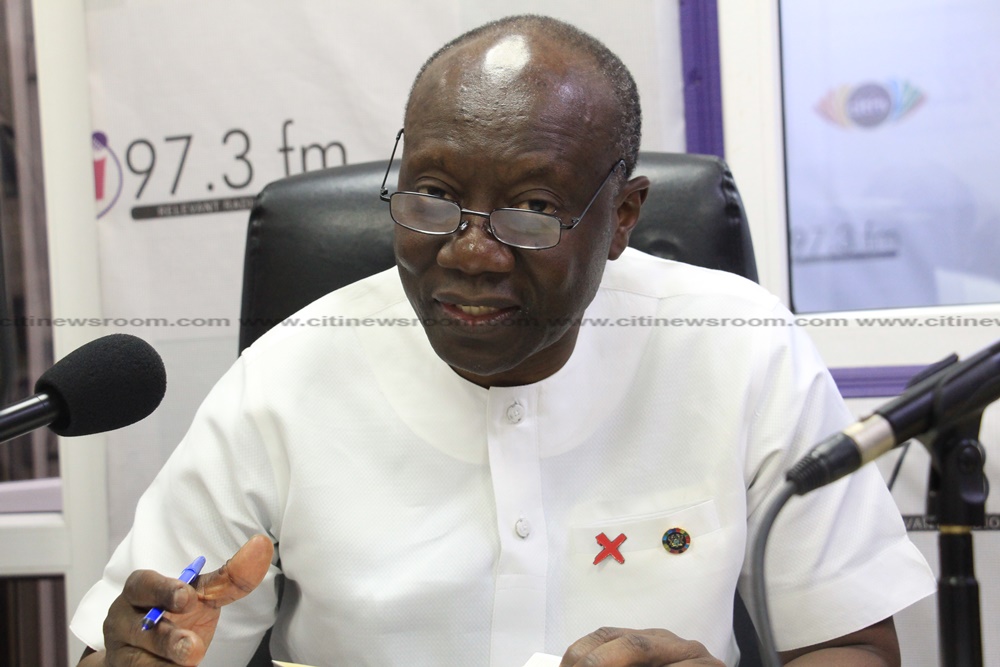The Ministry of Finance has clarified that the classification of Ghana as a low-income developing country in the International Monetary Fund’s (IMF) April 2021 Fiscal Monitoring document is not a downgrade.
“We wish to state that Ghana continues to be categorised as a ‘Lower-Middle Income Economy’ based on the widely-recognized classification of the World Bank and the UN,” the Ministry said in a statement issued by its Public Relations Unit.
Some social media posts and news reports said the IMF in its April 2021 Fiscal Monitor forecast report had downgraded Ghana’s economic classification from a low-middle-income country to a low-income developing country.
But the Ministry says “Ghana’s classification in the recent IMF Fiscal Monitor did not change” hence cannot be declared as a downgrade.
he statement further explains that “the groupings of economies presented in the Fiscal Monitor’s Methodological and Statistical Appendix serve an analytical purpose only. In this appendix, Ghana is conveniently categorized as a ‘Low-Income Developing Country (LIDC)’, like other Lower-Middle Income Economies such as Côte d’Ivoire, Kenya, Nigeria and others.”
The Director of the Institute of Statistical, Social and Economic Research (ISSER) at the University of Ghana, Professor Peter Quartey, had earlier noted that the World Bank’s description of Ghana as a low-middle income country is a more accurate classification of the country’s economic standing.
According to him, the International Monetary Fund’s classification presents a narrow view which does not give a fair account of the country’s standing.
Checks by Citi News also revealed that claims that Ghana’s economic stance has been downgraded were false.
Read below the statement by the Finance Ministry:
The Ministry of Finance has noted with concern publications in some media houses, including Joy FM, that Ghana has been downgraded as a “low income country” by the IMF in accordance with its latest Fiscal Monitor.
2. We wish to state that Ghana continues to be categorized as a “Lower-Middle Income Economy” based on the widely-recognized classification of the World Bank and the UN.
3. The IMF Fiscal Monitor does not aspire at classifying countries by income level. Instead, it analyses the latest public finance developments, updates medium-term fiscal projections, and assesses policies to put public finances on a sustainable footing. The groupings of economies presented in the Fiscal Monitor’s Methodological and Statistical Appendix serve an analytical purpose only. In this appendix, Ghana is conveniently categorized as a “Low-Income Developing Country (LIDC)”, like other Lower-Middle Income Economies such as Côte d’Ivoire, Kenya, Nigeria and others.
4. Ghana’s classification in the recent IMF Fiscal Monitor did not change. In effect, there is nothing like the country being downgraded.
5. Government has put in measures including the GHS100 billion Ghana CARES Obaatanpa programme that will provide the fiscal stimulus to drive growth and economic transformation post Covid-19 pandemic.
6. Ghana is projected to maintain a positive economic growth of 0.9% in 2020, representing one of the few “pockets of resilience” on the continent. In 2021 and over the medium term, the Government expects GDP growth to average 5% and the deficit to decline to under 5% by 2024.
7. We wish to reassure all Ghanaians that Ghana is still classified as a Lower-Middle Income Country. It is unfortunate that the media houses in Ghana did not contact the Ministry for verification, neither did they contact the offices of the World Bank and/ or the IMF in Ghana for corroboration. Public mis-information of this magnitude has serious implications for the international investor community, especially coming on the heels of a major and successful Eurobond issuance two weeks ago. END.







